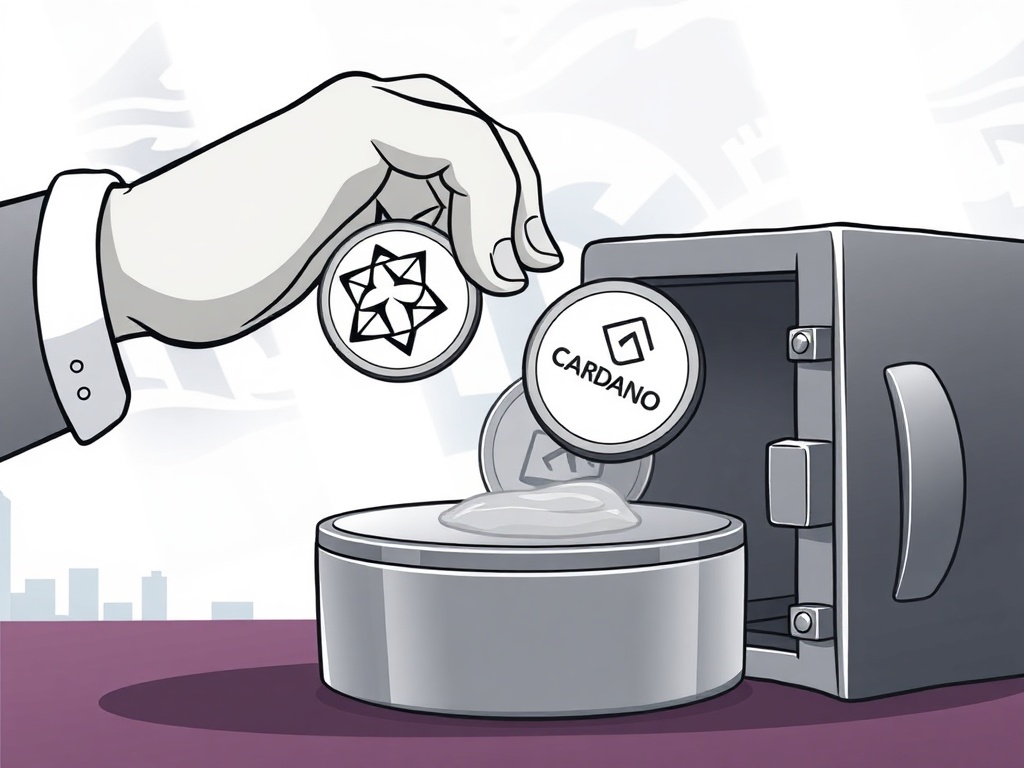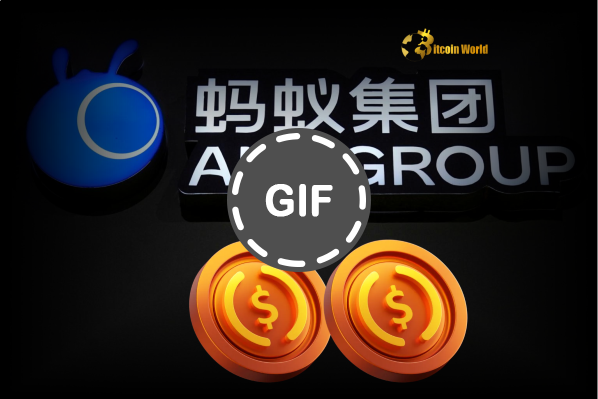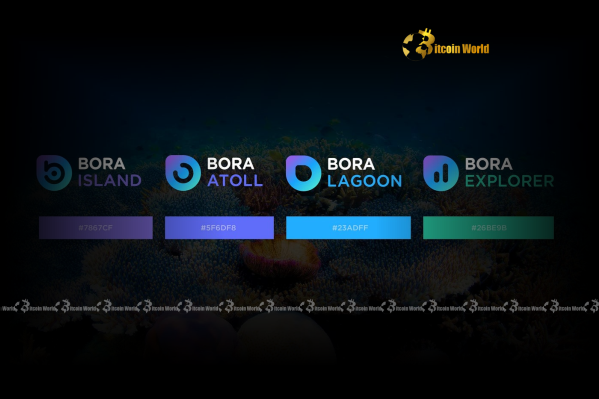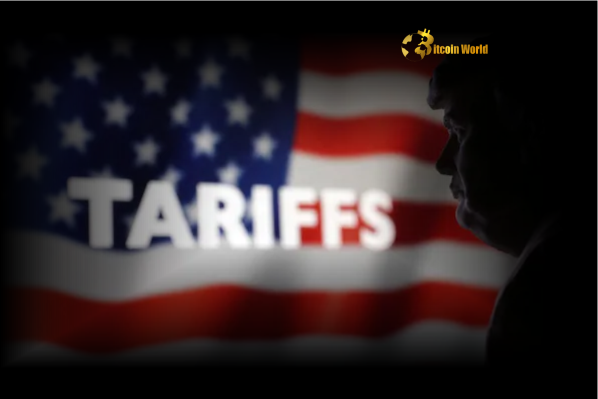BitcoinWorld

Grayscale Cardano Hedera ETFs: Unveiling a Momentous Step for Digital Asset Investment
The digital asset landscape is buzzing with exciting news! Grayscale Cardano Hedera ETFs are now a step closer to reality, following Grayscale’s registration of Cardano Trust and Hedera Trust ETFs in Delaware. This significant development, initially reported by Unfolded on X, marks another bold move by Grayscale, a leading name in cryptocurrency asset management, as it continues to expand its offerings beyond traditional Bitcoin and Ethereum products. For investors seeking regulated exposure to a broader range of digital assets, this news about Cardano Trust ETF and Hedera Trust ETF is truly compelling.
What Do Grayscale Crypto Trusts Mean for Investors?
Grayscale Investments, renowned for its Grayscale Bitcoin Trust (GBTC), provides institutional and accredited investors with access to cryptocurrencies through traditional investment vehicles. These trusts allow investors to gain exposure to digital assets without directly owning the underlying cryptocurrencies. Instead, investors buy shares in a trust that holds the assets. The recent registration of the Cardano Trust ETF and Hedera Trust ETF in Delaware indicates Grayscale’s intent to broaden this access to other prominent altcoins.
- Accessibility: Offers a regulated pathway for traditional investors.
- Custody: Grayscale handles the complex and secure storage of the underlying digital assets.
- Familiarity: Operates within a familiar investment structure, appealing to those hesitant about direct crypto ownership.
Why Cardano and Hedera? Exploring Their Unique Potential
Grayscale’s decision to focus on Cardano (ADA) and Hedera (HBAR) is noteworthy. Both are distinct blockchain platforms with unique value propositions. Cardano, a proof-of-stake blockchain, is known for its research-driven development and scalability ambitions. Hedera, on the other hand, utilizes a hashgraph consensus mechanism, aiming for high transaction speeds and low fees, particularly appealing to enterprise solutions. The inclusion of these assets in potential Grayscale crypto trusts highlights their growing prominence and perceived long-term value in the evolving digital economy.
This move suggests Grayscale sees significant potential in these networks to attract institutional capital. As the market matures, investors increasingly look beyond just Bitcoin and Ethereum for diversification and growth opportunities.
Navigating the Path: Benefits and Regulatory Hurdles for Digital Asset ETFs
The registration of these trusts in Delaware is an initial step, not a final approval for trading as ETFs. However, it signals Grayscale’s strategic direction. Should these trusts eventually convert into spot ETFs, they could unlock substantial benefits for a wider range of investors. Spot ETFs provide direct exposure to the underlying asset’s price movements, offering greater liquidity and ease of trading compared to existing trust structures.
Moreover, investors must consider the regulatory environment. The U.S. Securities and Exchange Commission (SEC) maintains a cautious stance on spot crypto ETFs for many altcoins. While the recent approval of spot Bitcoin ETFs was a landmark, the path for other digital assets, including those for Cardano Trust ETF and Hedera Trust ETF, remains uncertain and dependent on evolving regulatory clarity.
- Benefits: Enhanced liquidity, lower fees (potentially), easier integration into traditional portfolios.
- Considerations: Regulatory hurdles, market volatility, and the performance of the underlying assets.
What Does This Mean for the Future of Digital Asset Investment?
This development reinforces a broader trend: the increasing institutionalization of the cryptocurrency market. As more regulated products emerge, digital assets gain further legitimacy and become more accessible to mainstream finance. Grayscale’s proactive approach in registering these trusts underscores a belief in the long-term viability and growth of diverse blockchain ecosystems. This expansion could pave the way for more specialized crypto investment products, offering investors granular exposure to specific sectors or technologies within the blockchain space.
The journey from trust registration to a fully operational Grayscale Cardano Hedera ETFs product is complex, involving significant regulatory dialogue and market conditions. Nevertheless, this initial step by Grayscale is a clear indicator of growing institutional confidence in a wider array of digital assets beyond the market leaders.
In conclusion, Grayscale’s registration of the Cardano Trust and Hedera Trust ETFs in Delaware is a pivotal moment for the digital asset investment landscape. It signifies a potential expansion of regulated investment vehicles, offering traditional investors new avenues to engage with the innovative worlds of Cardano and Hedera. While the road to full ETF approval may have its challenges, this move firmly establishes Grayscale’s commitment to pioneering access to the burgeoning crypto market. This is undoubtedly a development worth watching closely as the industry continues to evolve.
Frequently Asked Questions (FAQs)
Q1: What are Grayscale Trust ETFs?
A1: Grayscale Trust ETFs are investment vehicles that allow investors to gain exposure to cryptocurrencies like Cardano and Hedera without directly owning the underlying digital assets. Instead, investors buy shares in a trust that holds these assets.
Q2: Why did Grayscale choose Cardano and Hedera for these new trusts?
A2: Grayscale’s decision suggests they see significant potential in both Cardano and Hedera due to their unique blockchain technologies, development efforts, and growing prominence in the digital economy. These assets offer diversification beyond Bitcoin and Ethereum.
Q3: Are these Grayscale Cardano Hedera ETFs already trading?
A3: No, the registration in Delaware is an initial step. It signals Grayscale’s intent to offer these products, but they are not yet approved for trading as spot ETFs. Full approval requires navigating the U.S. Securities and Exchange Commission (SEC) regulatory process.
Q4: How do Grayscale trusts differ from direct cryptocurrency ownership?
A4: Grayscale trusts provide a regulated pathway for investors, handling the complex and secure storage (custody) of the digital assets. Direct ownership requires investors to manage their own wallets and security, which can be more complex.
Q5: What are the potential benefits for investors if these trusts become spot ETFs?
A5: If converted to spot ETFs, potential benefits include enhanced liquidity, potentially lower fees compared to current trust structures, and easier integration into traditional investment portfolios for a broader range of investors.
Share Your Thoughts
If you found this insight into Grayscale’s latest moves valuable, please share this article with your network! Help us spread awareness about the evolving landscape of digital asset investments and the exciting prospects for Grayscale Cardano Hedera ETFs.
To learn more about the latest crypto market trends, explore our article on key developments shaping digital asset institutional adoption.
This post Grayscale Cardano Hedera ETFs: Unveiling a Momentous Step for Digital Asset Investment first appeared on BitcoinWorld and is written by Editorial Team





